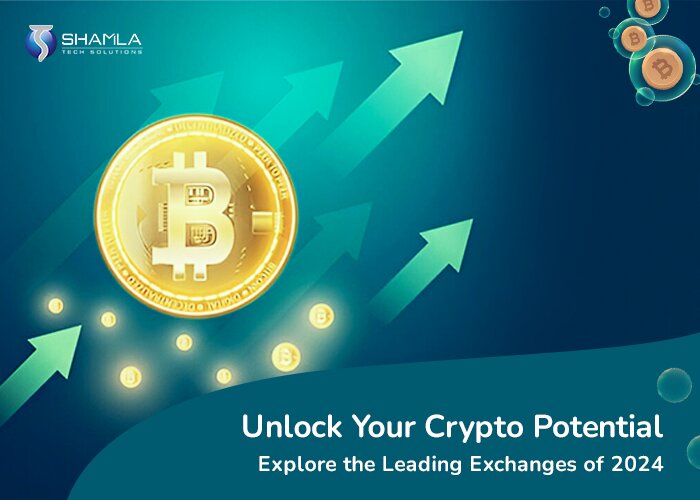In the rapidly evolving world of cryptocurrencies, the demand for secure and efficient exchange platforms has never been higher. As the crypto market continues to expand, developers are constantly innovating to meet the needs of traders and investors. In this article, we'll explore the top 10 trends in cryptocurrency exchange development for 2024.
- Decentralized Exchanges (DEXs): Revolutionizing Trading
Decentralized exchanges (DEXs) have gained significant traction in recent years due to their promise of enhanced security and privacy. Unlike centralized exchanges, DEXs allow users to trade directly from their wallets, eliminating the need for intermediaries. In 2024, we can expect to see further advancements in DEX technology, making them more user-friendly and accessible to a wider audience.
- Security Enhancements: Safeguarding Assets
With the increasing value of cryptocurrencies, security remains a top priority for exchange developers. In 2024, we anticipate the implementation of advanced security measures such as multi-factor authentication, biometric verification, and decentralized storage solutions. These enhancements will help mitigate the risk of hacking and ensure the safety of users' assets.
- Scalability Solutions: Handling High Volumes
As the popularity of cryptocurrencies continues to grow, exchanges must be prepared to handle large trading volumes efficiently. Scalability solutions such as sharding, layer 2 protocols, and optimized blockchain networks will become essential for ensuring smooth trading experiences even during peak times.
- Interoperability: Bridging the Gap
Interoperability between different blockchain networks is crucial for facilitating seamless asset transfers and trading experiences. In 2024, we expect to see the development of interoperable exchange platforms that support a wide range of cryptocurrencies and tokens, enabling users to trade across multiple networks with ease.
- DeFi Integration: Blurring the Lines
Decentralized finance (DeFi) has emerged as a major disruptor in the traditional financial sector, offering innovative solutions for lending, borrowing, and trading digital assets. In 2024, we'll witness increased integration between cryptocurrency exchanges and DeFi protocols, allowing users to access a broader range of financial services directly from exchange platforms.
- Regulatory Compliance: Navigating the Landscape
As governments around the world introduce new regulations for cryptocurrencies and digital assets, exchange developers must stay abreast of the evolving regulatory landscape. In 2024, we'll see a greater emphasis on regulatory compliance, with exchanges implementing robust KYC (Know Your Customer) and AML (Anti-Money Laundering) procedures to ensure legal compliance and protect users' funds.
- User Experience Optimization: Streamlining Interfaces
User experience (UX) will continue to be a key focus for cryptocurrency exchange developers in 2024. We can expect to see the implementation of intuitive and responsive user interfaces, as well as the integration of advanced trading tools and analytical features to empower traders and investors.
- Mobile Trading: Trading on the Go
With the increasing prevalence of smartphones and mobile devices, mobile trading has become increasingly popular among cryptocurrency enthusiasts. In 2024, we'll see the development of mobile-first exchange platforms optimized for iOS and Android devices, enabling users to trade anytime, anywhere with ease.
- Community Governance: Empowering Users
Community governance mechanisms, such as decentralized autonomous organizations (DAOs), are gaining traction within the cryptocurrency space. In 2024, we anticipate the emergence of exchange platforms governed by their users, allowing traders and investors to have a direct say in platform decisions and developments.
- AI and Machine Learning: Predictive Analytics
Artificial intelligence (AI) and machine learning (ML) technologies will play an increasingly important role in cryptocurrency exchange development in 2024. These technologies can be utilized for predictive analytics, market sentiment analysis, and automated trading strategies, empowering users to make informed decisions and maximize their returns.
Frequently Asked Questions (FAQs)
- Are decentralized exchanges (DEXs) safer than centralized exchanges?
Decentralized exchanges offer enhanced security compared to centralized exchanges since they do not require users to deposit funds into a central wallet. Instead, trades occur directly between users' wallets, reducing the risk of hacking and theft.
- How can I ensure the security of my assets on a cryptocurrency exchange?
To ensure the security of your assets on a cryptocurrency exchange, it's essential to choose platforms that implement robust security measures such as multi-factor authentication, cold storage for funds, and regular security audits.
- What are the advantages of mobile trading on cryptocurrency exchanges?
Mobile trading allows users to trade cryptocurrencies on the go, providing greater flexibility and convenience. It enables users to monitor market movements in real-time and execute trades quickly from their smartphones or tablets.
- How can cryptocurrency exchanges ensure regulatory compliance?
Cryptocurrency exchanges can ensure regulatory compliance by implementing stringent KYC (Know Your Customer) and AML (Anti-Money Laundering) procedures, as well as adhering to relevant laws and regulations in the jurisdictions where they operate.
- What role do AI and machine learning play in cryptocurrency exchange development?
AI and machine learning technologies can be used for predictive analytics, market sentiment analysis, and automated trading strategies on cryptocurrency exchanges. These technologies help users make informed decisions and optimize their trading strategies for maximum returns.
- How do decentralized exchanges (DEXs) achieve scalability?
Decentralized exchanges achieve scalability through various solutions such as sharding, layer 2 protocols, and optimized blockchain networks. These solutions enable DEXs to handle high trading volumes efficiently without compromising security or decentralization.


No comments yet